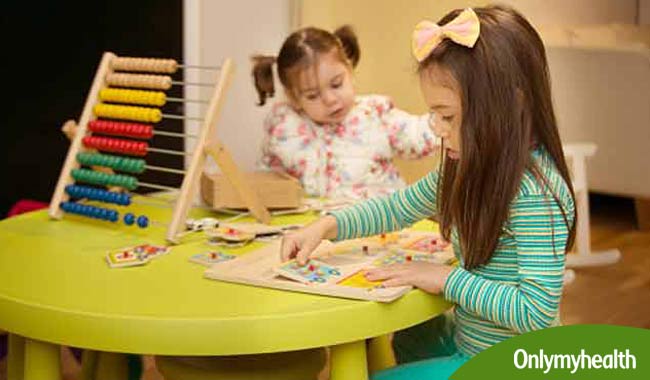
In middle childhood or the age between 5-12 years, significant changes occur in cognitive development. Children in this age group begin to think in a more logical way.

Some major cognitive developments that occur at this age are:
- Differentiation between fantasy and reality: A young child cannot differentiate between fantasy and reality. A four-year-old considers Santa Claus as real whereas a ten-year-old knows that Santa Claus is imaginary. There are several other things which a four-year-old considers real whereas a ten-year-old definitely knows the difference.
- Understanding someone's point of view: Like for example if Rohan’s mother asks him if he wants to eat when he is another room, he may nod in answer to the question thinking that his mother can see him. But an eight-year-old knows that he has to answer loud as his mother cannot see him nod. An older child appreciates another person’s viewpoint or empathizes with others whereas a young child does not empathize with others. A young child’s thought process is egocentric. Children start to understand another person’s viewpoint or empathize with others by the early part of middle childhood and it improves as the child reaches the end of middle childhood.
- Reversibility: Take some clay and make a bed out of it, then make a snake from this bed. Now if you ask the child to make a bed out of it again he or she will express inability. This is because a four-year-old cannot think backwards clearly and recollect the various steps. By middle childhood, a child’s ability to think and follow the steps backwards or reversibility starts to develop and by 11-12 years, it is well established.
- Classification: For a four-year-old, a set of playing cards can be arranged in only one colour. But if you ask a nine or ten-year-old he or she will be able to arrange or classify them in several ways such as a set of kings, queens, an ace and so on. By middle childhood, the cognitive thinking develops to an extent that children understand that the same objects can be classified in different ways.
What can my child do at this age?
Children in the age group of 5-12 years begin to understand various concepts and the world around. It is important to appreciate that every child grows at a different rate. However, some of the common milestones your child may reach in this age group are as follows:
6- to 7-year-olds
- Appreciates the concept of numbers.
- Appreciates daytime and nighttime.
- Identifies right and left hands.
- Copies complex shapes, like a diamond, hexagon.
- Knows the time.
- Can understand three separate instructions at a time.
- Can tell various objects and their use.
- Can repeat three numbers backwards.
- Knows to read age-appropriate books and/or materials.
8- to 9-year-olds
- Knows backwards counting.
- Tells the date.
- Can read better and enjoys reading.
- Understands the division.
- Comprehends the idea of space.
- Loves to draws and paints.
- Can tell the names of months and days of the week, in order.
- Enjoys collecting different things.
10- to 12-year-olds
- Writes stories by self.
- Enjoys writing letters.
- Can read well.
- Enjoys talking on the telephone.

Cognitive issues: Difficulties in school
As children vary in physical growth they develop at different rates intellectually as well. Consult your paediatrician if your child has difficulty in certain subjects and his or her general cognitive development or language development milestones seem different than normal.
How we keep this article up to date:
We work with experts and keep a close eye on the latest in health and wellness. Whenever there is a new research or helpful information, we update our articles with accurate and useful advice.
Current Version
